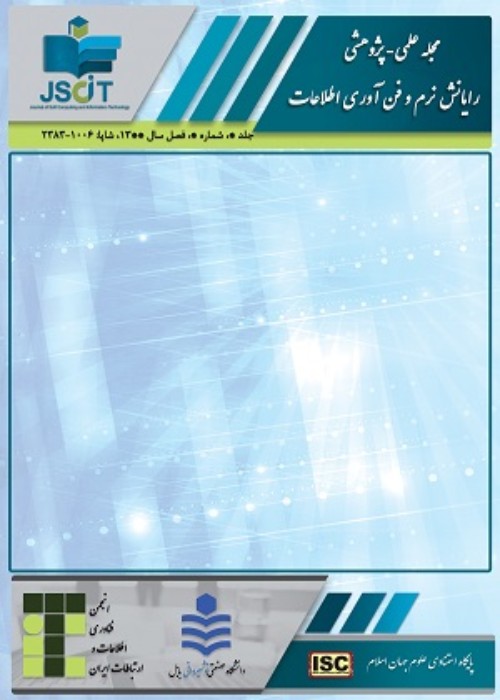A new Protocol for Controlling Congestion in Wireless Sensor Networks
Author(s):
Abstract:
Due to inherent limitations and number of distributed sensor nodes in wireless sensor networks (WSNs), the number of generated packets will be increased and congestion will be produced in link level or node level. Hence, the number of lost packets will be increased and the network resources such as energy will be consumed in inappropriate manner. So, the congestion is one of the most important challeng in WSNs. In this paper, a method is provided for controlling congestion. For congestion detection, the queue lenghth will be used and the occupied level of nodes buffer is indication of congestion level. In the proposed scheme, when the congestion occures, the congested node informs its upstream neighbour nodes. In order to controlling congestion, the upstream nodes will be reduced the transmitted pacekt rate and selects another path for data transmission. In selecting secondary path for data transmission node considers parameters such as amount of available energy and the empty size of the buffer. Simulation results show that the proposed scheme improve the consumtion energy and packet deliver rate in compraition with PCCP [9].
Keywords:
Language:
Persian
Published:
Journal of Soft Computing and Information Technology, Volume:5 Issue: 3, 2016
Pages:
65 to 73
magiran.com/p1718068
دانلود و مطالعه متن این مقاله با یکی از روشهای زیر امکان پذیر است:
اشتراک شخصی
با عضویت و پرداخت آنلاین حق اشتراک یکساله به مبلغ 1,390,000ريال میتوانید 70 عنوان مطلب دانلود کنید!
اشتراک سازمانی
به کتابخانه دانشگاه یا محل کار خود پیشنهاد کنید تا اشتراک سازمانی این پایگاه را برای دسترسی نامحدود همه کاربران به متن مطالب تهیه نمایند!
توجه!
- حق عضویت دریافتی صرف حمایت از نشریات عضو و نگهداری، تکمیل و توسعه مگیران میشود.
- پرداخت حق اشتراک و دانلود مقالات اجازه بازنشر آن در سایر رسانههای چاپی و دیجیتال را به کاربر نمیدهد.
In order to view content subscription is required
Personal subscription
Subscribe magiran.com for 70 € euros via PayPal and download 70 articles during a year.
Organization subscription
Please contact us to subscribe your university or library for unlimited access!


